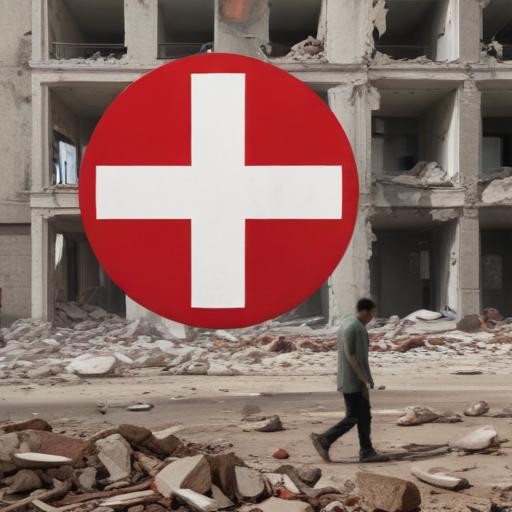Israeli Prime Minister Benjamin Netanyahu has declared that all territories of the Gaza Strip will come under Israel’s security control by the conclusion of its ongoing military operation. Speaking during a press conference, Netanyahu expressed Israel’s readiness for a possible temporary ceasefire and a deal to release hostages, while conveying that Israeli forces have endured significant pressure to continue their campaign. He noted that the recent ground offensive, termed “Operation Gideon’s Chariots,” commenced three days ago as part of Israel’s strategic military efforts.
Continuing with updates from the conflict, at least 82 Palestinians were reported killed in recent Israeli airstrikes, including women and a week-old infant, highlighting the ongoing humanitarian crisis in the region. Gaza’s health ministry has reported increasing casualties, including strikes targeting public areas such as bus stations and residential buildings.
While discussing military accomplishments, Netanyahu mentioned that Israel may have killed Mohammed Sinwar, a prominent Hamas figure, while reinforcing that operations would persist until Hamas is fully defeated. He emphasized that in any negotiations, conditions must guarantee Israel’s security, including the disarmament of Hamas and potential exile of its leadership.
On the humanitarian front, despite official announcements of lifted blockades, aid access remains constrained. Reports indicate that several aid trucks have entered Gaza but have not yet reached those in need due to security concerns. UN officials are expressing alarm over the delayed relief efforts, as food and medical supplies are critically needed in the stricken region.
Further complicating the situation, Netanyahu faces legal challenges regarding his authority to appoint the head of Shin Bet, following a recent supreme court ruling that deemed his dismissal of the former chief illegal. The Israeli leader stated his intention to proceed with the appointment, disregarding the court’s conclusions.
The international reaction to these developments has been mixed. The UN Secretary-General condemned Israeli forces’ warning shots fired at a team of 25 visiting diplomats, calling for further accountability. The UK has pledged additional humanitarian aid to Gaza, reflecting growing international concern about the situation and pressure on the Israeli government to ease restrictions to enable aid distribution.
Involving itself in broader geopolitical discussions, Netanyahu has reiterated the threat posed by Iran, asserting that Israel is coordinating with the United States to prevent nuclear armament efforts by Tehran.
These ongoing events emphasize the complexities of the conflict, the urgent humanitarian needs of the Gaza population, and the intricate layers of international diplomacy at play. The situation continues to evolve, and many are looking for pathways to achieve a more stable and peaceful resolution for all involved.
